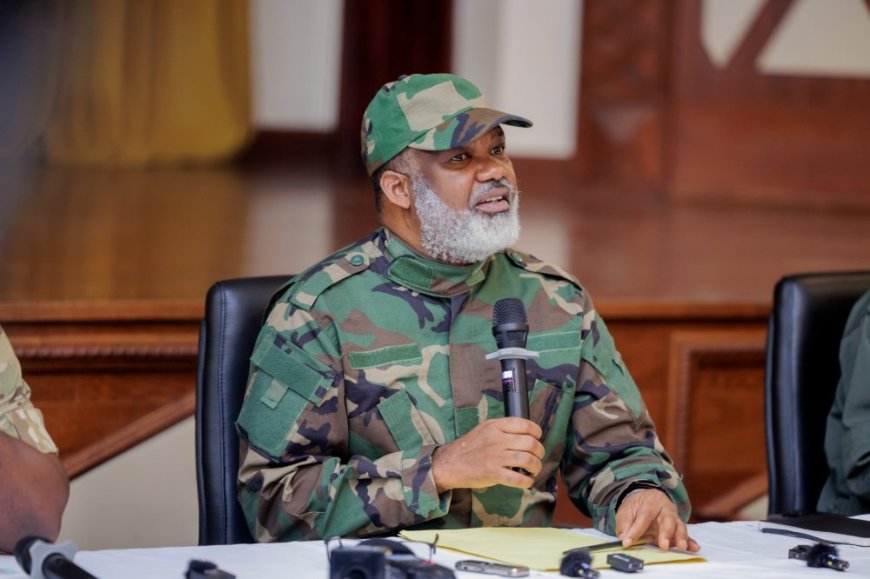M23 Rebels Declare Intent to March on Kinshasa Following Capture of Goma.
Examine the growing conflict in the Democratic Republic of Congo as the M23 rebel group seizes Goma and announces intentions to advance toward Kinshasa, emphasizing the humanitarian crisis and regional consequences.

In a major escalation of hostilities in the Democratic Republic of Congo (DRC), the M23 rebel group has announced plans to advance toward Kinshasa, the nation's capital, after recently seizing Goma, the provincial capital of North Kivu. This audacious action seeks to increase pressure on the Congolese government to tackle ongoing issues related to the treatment of Kinyarwanda-speaking communities and the widespread instability in the area.
Recent Military Advancements
The announcement follows M23’s rapid military progression, reaching a peak with their takeover of Goma on January 29, 2025. Corneille Nangaa, the political leader of the M23 coalition, emphasized in a press conference held in Goma on January 30 that they would not withdraw until their demands were fulfilled. "We are in Goma, and we will not depart... until the issues we took up arms are addressed," he declared, underscoring the group's commitment and determination.
The M23’s tactical gains have included the swift capture of additional strategic towns like Masisi and Sake, which aided their advance. With their victory in Goma, the rebels gain control of essential resources and establish a foothold from which they can further extend their influence in the region.
Humanitarian Crisis Unfolds
In Goma, the conditions are critical, as residents face acute shortages of medical services, food, and clean water. Hospitals are inundated; reports reveal they have cared for over a thousand injured individuals despite their limited capacities. Local healthcare centers, originally designed for just 146 beds, are struggling to handle the surge of casualties from the ongoing conflict.
As the M23 strengthens its hold on Goma, vital services are facing interruptions. Nangaa has committed to reinstating water and electricity within 48 hours, encouraging displaced residents to return to their homes. Nevertheless, the lingering skepticism among residents is evident, stemming from the turmoil and violence they've recently endured.
Regional Implications and International Response
The M23’s capture of Goma sparks serious worries about a larger regional conflict. Rwanda is suspected of backing the rebels, with estimates indicating that between 3,000 and 4,000 Rwandan soldiers could be advising or aiding M23 forces. This support heightens the potential for increased tensions between Rwanda and the DRC, especially considering the historical background of armed groups functioning along their common border.
With the DRC military facing difficulties in countering M23's advances, concerns about a potential resurgence of wider conflicts in the region emerge. Analysts note that the DRC has a notorious history of instability, characterized by various rebel factions active within its territory. Furthermore, the situation is worsened by ongoing peacekeeping issues, as the effectiveness of the UN's operations is increasingly scrutinized in light of escalating violence.
Humanitarian Aid Concerns
The humanitarian aspects of the crisis are crucial and cannot be ignored. According to the UN’s World Food Program, ongoing fighting and instability have forced half a million people to flee their homes. As families are uprooted and local resources are put under immense pressure, there is an urgent demand for shelters, food, and medical supplies.
Shelley Thel, a representative of the World Food Program, stressed the need for secure humanitarian corridors to ensure the delivery of aid. "Right now, the humanitarian situation has become desperate, and we must act to prevent it from being forgotten," she remarked.
During conflicts, women and children are especially at risk. As they flee their homes or look for vital resources, many encounter increased threats, including sexual violence. Humanitarian groups emphasize the urgency of taking immediate action to safeguard these populations and guarantee their access to food and medical assistance.
The Path Forward
The global community is urged to act as M23 rebels advance towards Kinshasa. Immediate humanitarian assistance is vital, but long-term strategies must also be implemented to tackle the root causes of the conflict. Prioritizing diplomatic initiatives for resolution and reconciliation is essential for restoring regional stability.
As the DRC faces this pivotal moment, the consequences of M23’s movements will be observed closely. The international community’s response through humanitarian aid and diplomatic efforts can greatly affect the crisis’s course and the chances for peace.
The advance of M23 rebels towards Kinshasa marks a critical juncture in the fight for power and stability in the DRC. Amid a worsening humanitarian crisis and escalating regional tensions, the need for decisive action from both local and international entities is more pressing than ever. The world will closely watch the DRC as it manages these troubled times, yearning for a solution that emphasizes the safety and welfare of its people.
 Kinyarwanda
Kinyarwanda
 English
English










































































